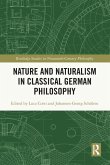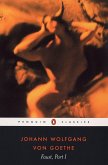Remapping Biology with Goethe, Schelling, and Herder recruits a Romantic philosophy of biology into contemporary debates to both integrate the theoretical implications of ecology, evolution, and development, and to contextualize the successes of the Modern Evolutionary Synthesis's gene's-eye-view of biology.
The dominant philosophy of biology in the twentieth century was one developed within and for the Modern Evolutionary Synthesis. As biologists like those developing an Extended Evolutionary Synthesis have pushed the limits of this paradigm, fresh philosophical approaches have become necessary. This book makes the case that an organicism developed by the 19th century figures Goethe, Schelling, and Herder offers surprising resources to navigate the contemporary biological and evolutionary terrain. This "metamorphic organicism" resonates with present trends in biological theory that emphasize process, organismal dynamics, ecology, and agency. It also proposes strategies for reintegrating reductive and mechanistic maps of biology, like those of the Modern Evolutionary Synthesis, into richer theoretical representations of life.
Drawing from cutting-edge biology, Romantic history, and perspectival pluralist literatures, this integrated history-and-philosophy-of-biology will be of interest to students and scholars interested in the genesis of current theoretical tensions in evolutionary biology, and to those seeking constructive ways to resolve those tensions, including practicing biologists and educators.
The dominant philosophy of biology in the twentieth century was one developed within and for the Modern Evolutionary Synthesis. As biologists like those developing an Extended Evolutionary Synthesis have pushed the limits of this paradigm, fresh philosophical approaches have become necessary. This book makes the case that an organicism developed by the 19th century figures Goethe, Schelling, and Herder offers surprising resources to navigate the contemporary biological and evolutionary terrain. This "metamorphic organicism" resonates with present trends in biological theory that emphasize process, organismal dynamics, ecology, and agency. It also proposes strategies for reintegrating reductive and mechanistic maps of biology, like those of the Modern Evolutionary Synthesis, into richer theoretical representations of life.
Drawing from cutting-edge biology, Romantic history, and perspectival pluralist literatures, this integrated history-and-philosophy-of-biology will be of interest to students and scholars interested in the genesis of current theoretical tensions in evolutionary biology, and to those seeking constructive ways to resolve those tensions, including practicing biologists and educators.
"In this critical but incredibly informed analysis, Gregory Rupik argues that, for over fifty years, philosophical analyses of biology have been cripplingly short-sighted. They ignore themes, pertaining to evolution and related subjects, that were highlighted and developed by Romantic thinkers, starting with the polymath Johann Wolfgang von Goethe. Rupik does not deny the contributions of Charles Darwin and others guided by a machine root metaphor, but he makes a very strong case for saying that those who ignore the Romantics' organism root metaphor are impoverished thinkers. Agree or disagree, this book is essential reading."
Michael Ruse, Florida State University, USA
"Greg Rupik bridges the Romantic notions of life at the turn of the 19th century with contemporary philosophy of biology, showing how Goethe and other Romantic philosophers and scientists have ongoing relevance for how we think about organisms, life, and biology. He translates Goethe's writings on morphology and experimentation into contemporary terms, arguing that this Goethean philosophy of biology provides a compelling alternative to the Modern Evolutionary Synthesis. This book is an important contribution to the history of biology in this era, and will be immensely valuable to those looking to expand the horizons of evolutionary biology today."
Naomi Fisher, Loyola University, USA
"Masterful. Rupik's elegant argument echoes the oft heard complaint that evolutionary biology is greatly impoverished by its neglect of the organism. But, unlike many, Rupik does something about it. He returns us to the Romantics of Jena at turn of the 19th century-Goethe, Schelling, Herder, and others-to the very inception of modern biology. This Romantic biology is alien to our current Modern Synthesis tradition, yet as Rupik demonstrates, there are riches here to be mined for the benefit of contemporary evolutionary thought. In the process, Rupik provides an object lesson in the power of historically informed philosophy of science to enrich current theory and practice."
Denis Walsh, University of Toronto, Canada
"Etymologically, the term "romantic," from Medieval Old French (a.k.a. Romanz), refers to heroic tales that were commonly written in that vernacular language (as opposed to Latin). Rupik's methodologically sublime book is a tale about Goethe, Herder, and Schelling-oft-forgotten "heroes" of biology that think more holistically and agentially-but it's also a tale about organisms, the forgotten "heroes" of their own developmental and evolutionary stories. Furthermore, drawing on the "map analogy," Rupik shows how Romantic metamorphic organicism is a general theoretical map in which the "modern evolutionary synthesis" gene-centric map can be embedded. Rupik's marvelous book has arrived at the perfect moment."
Rasmus Grønfeldt Winther, University of California Santa Cruz, USA
Michael Ruse, Florida State University, USA
"Greg Rupik bridges the Romantic notions of life at the turn of the 19th century with contemporary philosophy of biology, showing how Goethe and other Romantic philosophers and scientists have ongoing relevance for how we think about organisms, life, and biology. He translates Goethe's writings on morphology and experimentation into contemporary terms, arguing that this Goethean philosophy of biology provides a compelling alternative to the Modern Evolutionary Synthesis. This book is an important contribution to the history of biology in this era, and will be immensely valuable to those looking to expand the horizons of evolutionary biology today."
Naomi Fisher, Loyola University, USA
"Masterful. Rupik's elegant argument echoes the oft heard complaint that evolutionary biology is greatly impoverished by its neglect of the organism. But, unlike many, Rupik does something about it. He returns us to the Romantics of Jena at turn of the 19th century-Goethe, Schelling, Herder, and others-to the very inception of modern biology. This Romantic biology is alien to our current Modern Synthesis tradition, yet as Rupik demonstrates, there are riches here to be mined for the benefit of contemporary evolutionary thought. In the process, Rupik provides an object lesson in the power of historically informed philosophy of science to enrich current theory and practice."
Denis Walsh, University of Toronto, Canada
"Etymologically, the term "romantic," from Medieval Old French (a.k.a. Romanz), refers to heroic tales that were commonly written in that vernacular language (as opposed to Latin). Rupik's methodologically sublime book is a tale about Goethe, Herder, and Schelling-oft-forgotten "heroes" of biology that think more holistically and agentially-but it's also a tale about organisms, the forgotten "heroes" of their own developmental and evolutionary stories. Furthermore, drawing on the "map analogy," Rupik shows how Romantic metamorphic organicism is a general theoretical map in which the "modern evolutionary synthesis" gene-centric map can be embedded. Rupik's marvelous book has arrived at the perfect moment."
Rasmus Grønfeldt Winther, University of California Santa Cruz, USA








